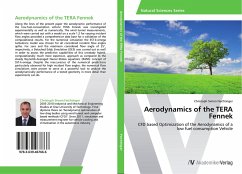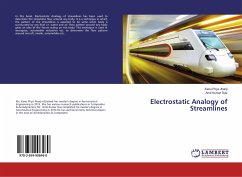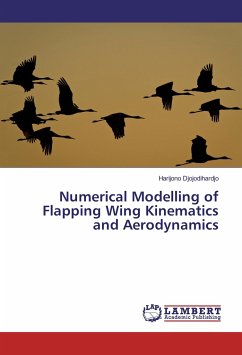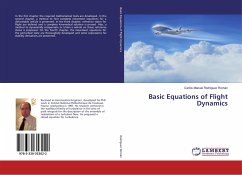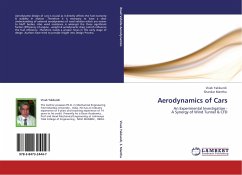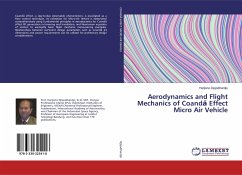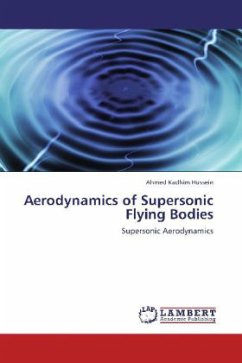Along the lines of the present paper the aerodynamic performance of the low-fuel-consumption vehicle TERA Fennek was investigated experimentally as well as numerically. The wind tunnel measurements, which were carried out with a model on a scale 1:2 for varying incident flow angles provided a comprehensive data base for a validation of the computational results. For the numerical simulation the SST-k-omega turbulence model was chosen for all considered incident flow angles aplha. For zero and the maximum considered flow angle of 25°, respectively, a Detached Eddy Simulation (DES) was carried out as well in order to assess the predictive capabilities of this unsteady hybrid, computationally much more expensive, approach as compared to the steady Reynolds-Averaged Navier-Stokes equations (RANS) concept of SST-k-omega. Despite the inaccuracies of the numerical predictions particularly observed for high incident flow angles, the numerical flow simulations were proven to serve as a powerful tool to analyse the aerodynamically performance of a tested geometry in more detail than experiments can do.

